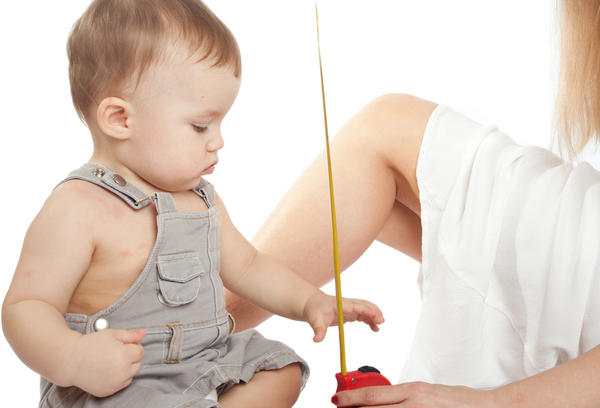 How is your child growing? Many parents wonder if their child is growing properly. You might be surprised by just how much a child grows from its birth to the second year. During that second year, a child will put on two to three inches and another four pounds on average. So how much should a 2 year old weigh? Starting with that number can help you determine whether your child is on the right track to healthy growth.
How is your child growing? Many parents wonder if their child is growing properly. You might be surprised by just how much a child grows from its birth to the second year. During that second year, a child will put on two to three inches and another four pounds on average. So how much should a 2 year old weigh? Starting with that number can help you determine whether your child is on the right track to healthy growth.
How Much Should a 2 Year Old Weigh?
How much your child should weigh depends on their gender. Little boys should weigh 27.5 pounds at the age of two, or a little bit more. Little girls should weigh about 26.5 pounds, a whole pound less than the boys. However, remember that these are estimates of what the average child should weigh at age two. Your child might weigh more or less, depending upon their health, how much and what they eat, their activity level and some other factors.
This is why regular checkups are so important during those first few years of life. Your doctor will plot your child's growth on a standardized chart and track just how well he or she is growing. That means that as long as your child is growing consistently, all is well, even if he or she is under or over the typical weight. So the answer to how much should a 2 year old weigh varies greatly, depending upon the child.
As your child grows, he or she will try new foods and go through growth spurts. They will also go through times when they don't eat as much and don't put on as much weight. All of these things are perfectly normal and shouldn't be considered a problem.
Other Development Skills to Expect for 2 Year Olds
Now you get answer to how much should a 2 year old weight, do you expect some other skills from your little one? Your child will start doing many more things for themselves at about the age of 2. Here are several skills to expect from your 2 year old.
1. Get Undressed
Your children will want to take off their own clothes, and will probably do so as often as they can! This works out well because at this point, your child will likely be messy all the time, whether it's from eating or playing. You may need to lower your expectation a little at this time.
2. Practice Good Hygiene
Your 2 year old may start to do some hygiene actions like sneeze to his/her elbow rather than hands or air, which can be taught by preschool teachers. At this point your child might be in the mood to wash their hands all the time, and can learn other good rules, such as how to use a tissue when they sneeze.
3. Clean Teeth
Brushing teeth becomes a fun endeavor at this point. Though they can't do the circular motions and get every area yet, they can begin the experience, and you can finish it up. Around age 3, your child can do such necessary circular motions needed for brushing teeth.
4. Go to Potty
Some children want to go to the bathroom on their own at this point and are tired of diapers or pull-ups. You can encourage potty training as soon as your child shows the slightest bit of interest, but don't force it – this could be a long process.
To learn more about your child's development at this age, see HERE.
How to Support Your 2 Year Old's Development
In addition to figuring out how much should a 2 year old weigh, you can do other things to promote excellent development for your little one.
1. Appoint Regular Checkup
In addition to weighing your child and taking all the necessary vitals, your doctor will give your child any vaccinations he or she has missed out on earlier, as well as ask you plenty of questions about how well the child is developing and growing. A simple blood test might be done in order to get a full overview of your child's health. Be ready with lots of answers to questions, such as how many words your child uses on a regular basis and what he or she likes to eat.
2. More Tips for Parents
Now is the time to do all you can to help your child's development. Understanding what your child needs goes much further than the basics, such as how much should a 2 year old weigh or what should they be eating.
Start by getting active. Your child will want to test their body right now, so help them play games that require climbing, running and jumping. Play with them at quiet times too, such as with blocks or cuddly toys. And if your child wants to let out their frustrations, let them scream and throw that tantrum – they will soon learn how to control their emotions, but right now, they need to let them out and learn that it's okay to do so.

